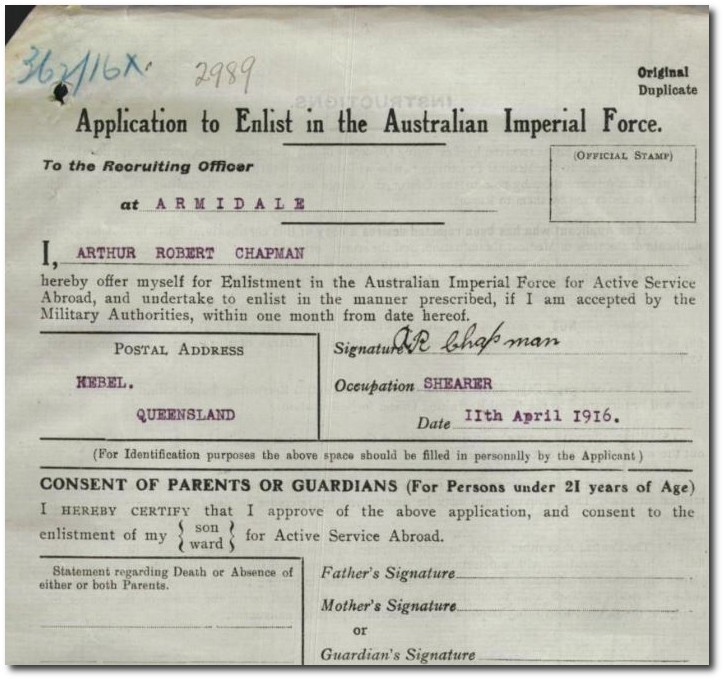
Extract from service record for Arthur Chapman, courtesy of the National Archives of Australia, Series B2455 Item ID 3231475
Indigenous Australian, Arthur Chapman, 6th Light Horse Regiment
Arthur Chapman known as Robert, was born at Currawillinghi Station, Hebel, Qld in 1887. The eldest son of William George Chapman and Sarah Forrester, he was working as a shearer in NSW when he volunteered to serve in the First World War, in April 1916.
After training at Armidale, Chapman embarked on board HMAT Katuna from Sydney on 23 November 1916 and was briefly admitted to hospital on his arrival in Egypt. Chapman spent three months undergoing further training at the 2nd Light Horse Training Regiment after which he joined the 6th Light Horse Regiment.
Promoted to driver, Chapman served with his unit undertaking took long range patrols in Palestine and the Jordan River Valley. Chapman contracted malaria in August 1918, a disease commonly contracted by those working in this area. He was hospitalised for several weeks before rejoining his regiment where he remained until the end of hostilities.
Many of the Light Horse Regiments were employed as garrison troops in Egypt after the war during the uprising against British rule, returning home in 1919.
Arthur Chapman returned to live and work in the Hebel area and married Mary Ann Judy in 1923, they had six children. He died in 1955 age 68 and is buried in the Dirranbandi Cemetery.
++Further information supplied by Arthur’s Great Granddaughter: Arthur actually had 10 children with Mary Ann. 2 sons of the 10 children died in childhood. But 8 children survived to adulthood. They had 4 sons and 6 daughters in total. (30 June 2025)
Read more ...
- Service record: CHAPMAN, Arthur Robert
- Embarkation roll: 23rd Reinf. 6th Light Horse Regiment
- One of the soldiers featured in SLQ’s HistoryPin Collection
- Queensland’s Indigenous Servicemen [digital story & oral history, 12 min, mp4]
The information in this blog post has been researched by State Library staff and volunteers, it is based on available information at this time. If you have more information that you would like to share or further research uncovers new findings, this post will be updated.
Comments
Your email address will not be published.
We welcome relevant, respectful comments.